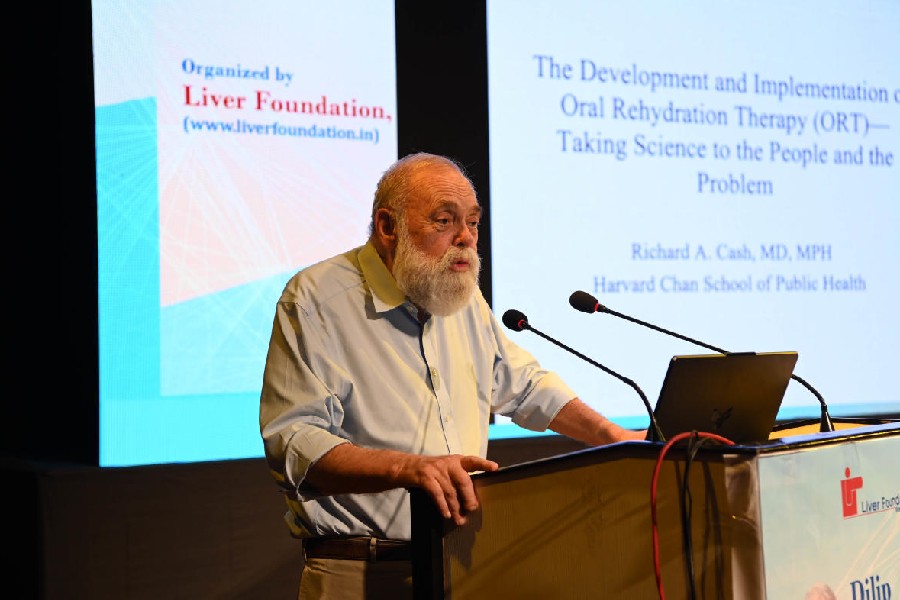The community has to be involved to deal with any public health issue and for that clear and honest communication is a must, said a doctor whose community-based trials of the oral rehydration therapy changed the way one
public health scare is dealt with.
Richard Cash, a senior lecturer of global health at the Harvard TH Chan School of Public Health, said the authorities should be “honest and straightforward” to convey the reality of any public health problem to the community to involve it in the fight.
During a conversation with The Telegraph on Monday, Cash was told that the public health authorities in Calcutta often blame ordinary people for not taking measures to prevent breeding of mosquitoes, a lapse that impedes the fight against vector-borne diseases such as dengue and malaria.
This newspaper has been reporting that vacant plots and public spaces in the city have turned into mosquito-breeding sites as piles of garbage have been lying there for days and weeks.
Officials of the Calcutta Municipal Corporation (CMC) have said that despite awareness campaigns, people are rampantly violating public health advice.
“I do not like blaming the victim. No one wants to fall sick, no one wants to go to the hospital and no one wants to die. If you make a strong case and a strong argument, people will listen,” he said.
“You need to have a strong community-based programme to stop the breeding of mosquitoes. This is important in public health.”
Data like the number of infections could be used to elicit better responses from people, Cash said.
The number of infections, he said, could be a tool to demonstrate how one neighbourhood is behaving more
responsibly than another in combating a particular disease.
A number of dengue cases have been reported from Calcutta and several persons from the state have died.
The CMC has not revealed any figure on the number of people who have contracted dengue and have died of the disease in Calcutta.
“This is not a disease that people want to get. If they are hospitalised, they will have to spend a lot of money. So people will realise what they need to do if they are told well,” Cash said.
“If you have data and tell people that there is an emerging problem, they will listen and take steps. But if the government doesn’t tell them that there is a problem, why
will they do something that
the government tells them to do?
“If you deny the truth, then ordinary people will not take necessary steps. If you tell them late, by when there is an outbreak, then it is too late,” he said.
Cash spoke on the sidelines of the first Dilip Mahalanabis Memorial Oration on Monday, where he spoke about the challenges that doctors and other health workers had to overcome to conduct trials of the oral rehydration therapy in the community.
He spoke about how some women who were entrusted with the responsibility to explain the use of the solution to the community had to drink the solution themselves to convince people in the 1960s in Bangladesh.
